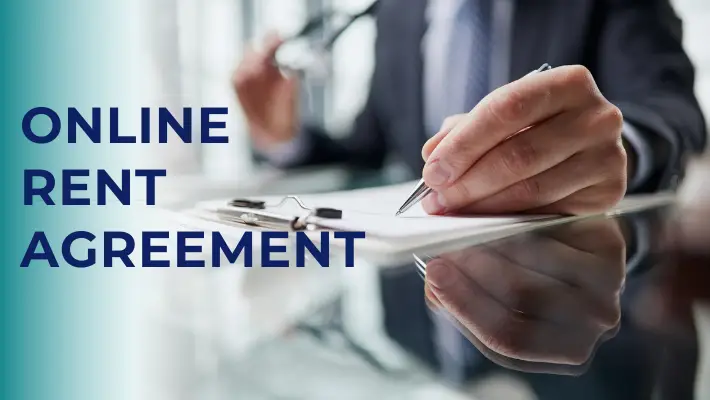
Give Us Documents via Email Or Whatsapp
Give Biometrics at decided place and time
Get Registered Rent Agreement
Online Rent Agreement in Dahisar
Happy Documenting stands at the forefront as the leading online rent agreement service provider in Dahisar. With over a decade of invaluable experience, we have meticulously honed our expertise in the intricacies of rental documentation, addressing the specific requirements of property owners and tenants. Our efficient online rent agreement creation service in Dahisar has firmly established our reputation as a trusted and esteemed name in the industry. When your search for rental agreements brings you to Dahisar, you can wholeheartedly rely on Happy Documenting as your dependable partner for a seamless and efficient experience.
What is a Rent Agreement?
A rent agreement, often referred to as a lease or tenancy agreement, is a legal contract between a property owner (landlord) and a tenant, stipulating the terms and conditions of renting a residential or commercial property. This document outlines essential details such as the parties involved, property description, lease duration, rent payment, security deposit, maintenance responsibilities, utility arrangements, house rules, and the process for lease termination or renewal. Rent agreements serve as a fundamental reference, ensuring both parties understand their rights and obligations during the tenancy.
In summary, a rent agreement is a crucial legal document that establishes a clear framework for the landlord-tenant relationship, providing protection and clarity for all parties involved in the rental arrangement.
Benefits of Rent Agreement
- Legal Protection: Rent agreements are legally binding documents that protect the interests of both landlords and tenants. They clearly define the terms and conditions of the lease, reducing the likelihood of disputes or misunderstandings.
- Rent Payment Clarity: Rent agreements specify the rent amount, due date, and payment method, ensuring tenants are aware of their financial obligations. This clarity helps both parties budget and plan accordingly.
- Duration and Renewal: The agreement states the lease term, whether it's a fixed period or month-to-month. It also outlines the process for renewal or termination, providing stability and flexibility for both landlords and tenants.
- Security Deposit: The agreement details the security deposit amount and conditions for its return, protecting landlords from damages and unpaid rent and ensuring tenants understand when and how they can expect the deposit to be refunded.
- Maintenance Responsibilities: Rent agreements specify who is responsible for property maintenance and repairs, preventing disputes over maintenance issues and outlining the process for addressing them.
- Legal Reference: In case of disputes or legal issues, the rent agreement serves as a valuable reference for resolving conflicts, as it outlines the rights and obligations of both parties.
- Property Rules: The agreement can include rules and regulations related to the property, such as pet policies, smoking restrictions, and use of common areas, ensuring tenants adhere to these guidelines.
- Proof of Residency: Rent agreements can be used as proof of residency, which may be required for various purposes, including obtaining identification documents, setting up utilities, or registering with local authorities.
- Bank and Credit Verification: Having a valid rent agreement can be useful for tenants as it provides a formal document to show to banks and creditors when seeking loans or establishing credit.
- Compliance with Local Laws: Rent agreements are often designed to comply with local rental laws and regulations, ensuring that the lease adheres to legal standards.
What will you need?
Tenant and Landlord Information:
- Full legal names and contact details of both the landlord and tenant.
- Valid identification, such as Aadhar card, PAN card, or passport, for both parties.
- If the landlord is not the property owner, a copy of the property owner's authorization to rent the property.
Property Details:
- A detailed description of the property being rented, including its address, unit number (if applicable), and any unique features or amenities.
- Property ownership documents (such as property title documents) if the landlord is not the owner.
Lease Term:
- The intended start date and end date of the lease.
- If it's a fixed-term lease, the duration of the agreement (e.g., one year).
Rent and Deposit Information:
- The monthly rent amount.
- The due date for rent payment.
- The method of payment (e.g., check, bank transfer).
- The amount of the security deposit.
- Terms for returning or deducting from the security deposit.
Maintenance and Repairs:
- Clarification of maintenance responsibilities for both the landlord and tenant.
- Procedures for reporting and addressing repairs and damages.
Utilities and Services:
- Details on which utilities and services (e.g., water, electricity, internet) are included in the rent and which are the tenant's responsibility.
House Rules:
- Any specific rules or regulations related to the property, such as restrictions on smoking, keeping pets, or use of common areas.
Termination and Renewal:
- The process for terminating the lease, including notice periods and conditions.
- If applicable, terms for lease renewal.
Legal Provisions:
- Clauses related to dispute resolution, eviction, governing law, and other legal matters.
Stamp Duty and Registration:
- Depending on local laws, you may need to calculate the required stamp duty and register the rent agreement with the local authorities. You'll need to provide proof of the stamp duty payment and a registered copy of the agreement.
Document Required
1. For Owner’s/Licensor’s
- Ownership Document (Index-2/Light Bill etc)
- Aadhar Card*
- Pan Card*
2. For Tenant/Licensee’s
- Aadhar Card*
- Pan Card*
3. For 2 witness
- Aadhar Card*
- Pan Card*
4. For POA Holder/Authorized Person
- Original Power of Attorney (If any)
- Original Authority Letter (If any)
- Aadhar card (P.O.A or Authorized person)*
- Pan card (P.O.A or Authorized person)






